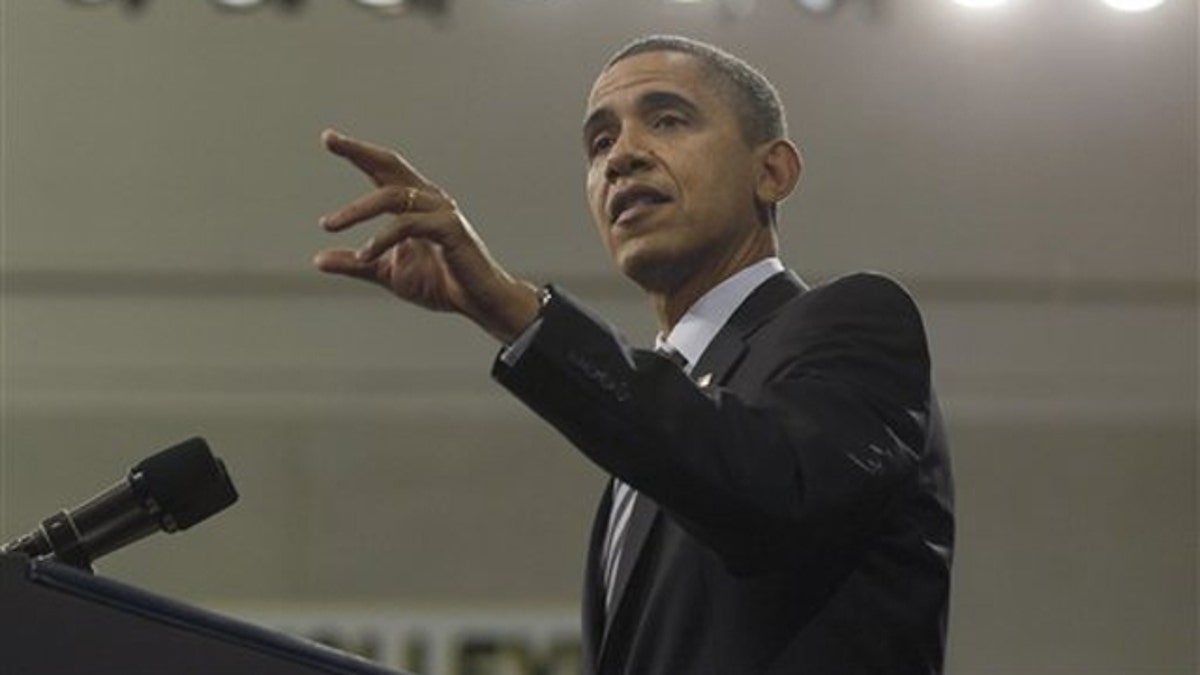
President Obama speaks at Northern Michigan University in Marquette, Mich., Feb. 10. (AP)
President Obama and other U.S. officials called on Egypt to pursue an "orderly" transition to democracy Thursday, as Hosni Mubarak announced he would pass some authority to his vice president but remain in power.
Though there were conflicting reports Thursday about Mubarak's plans, the 30-year ruler of Egypt announced in a televised address that he would stay in power until elections in September.
Obama, speaking at an unrelated event in Northern Michigan University, kept his remarks brief as he addressed the turmoil shortly before Mubarak spoke. He expressed support for the "young people" in Egypt, vowing to work with the next government.
"What is absolutely clear is that we are witnessing history unfold," Obama said. "It's a moment of transformation that's taking place because the people of Egypt are calling for change. ... America will continue to do everything that we can to support an orderly and genuine transition to democracy in Egypt."
House Democratic Leader Nancy Pelosi went further, saying that if Mubarak steps down it will be a "victory" for young people in Egypt.
Mubarak, though, did not cede total control.
The White House stayed mostly quiet Thursday as the developments in Egypt unfolded. After CIA Director Leon Panetta said on Capitol Hill there was a "strong likelihood" Mubarak could step down Thursday evening, White House Press Secretary Robert Gibbs deflected questions from the reporters aboard Air Force One to Michigan.
"We're watching a very fluid situation," Gibbs said.




